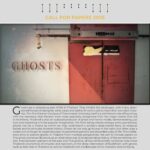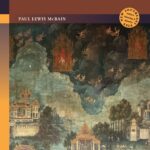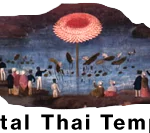The Brocade Zither
by Li Shangyin
The 50-stringed zither has a sound too baffling to comprehend and this Has no reason. For each string, a bridge, each bridge, a resonance – ah! How I long for the flowering years. When… Master Zhuangzhi loses himself in dawn dreams, dreaming that he is a butterfly, awaking to think he still is – When… The Wang Emperor who, out of shame, entrusts his spring heart to the cuckoo bird. When… Pearls, waxing and waning with the moon, are the tears of the sea people And the warmth of the sun makes smoke rise from Indigo Fields of Jade. And, like that smoke, these landscapes, This feeling: you can wait for it to become memory Only, at that time, it was already bewildering.
錦瑟無端五十弦,一弦一柱思華年。 莊生曉夢迷蝴蝶,望帝春心托杜鵑。 滄海月明珠有淚,藍田日暖玉生煙。 此情可待成追憶,只是當時已惘然。
This is a very liberal translation of one of my favorite poems by Li Shangyin (813-58). I’ve added quite a few things to clarify the poem though of course, through clarifying, I add my own interpretation. The problem with more literal translations is I think that that, outside of its cultural context, the poem is too obscure. For example, in the original it says only ‘the Zhuangzhi scholar lost in dawn dreams butterfly.’ The poet would have assumed that his readers would know that this refers to they myth of Zhuangzhi dreaming he is a butterfly so vividly that he awoke to wonder if he still was. Most people reading an English translation will not, so I think it is fair to put in additions like these to elucidate the myths that are alluded to.
The use of Chinese myths and the nature of Chinese poetry writing (which does require temporal indicators in its grammar) causes an additional level of de-centralizing, a play of time, between the present of the poet perceiver and the timeless realm of myth which I have tried to re-create in the translation by interpolating ‘when’ and playing around with tense. More than anything however, this is to try to re-create some of the playfulness of the original.
The final imagery of the smoke, readers would very likely have associated with a comment by Dai Shulun (732-89) who said that scenes of poetry are like the mist that rises from the fine jade of Lantian (Indigo Fields) in the warmth of the sun – they can be gazed from afar but cannot be placed immediately before the eyes. I think that without putting something between this image and the final couplet it is too abstruse so I added ‘and, like that smoke, these landscapes’.
The central theme of the poem appears to be transcendence and transition, of nothing being solid or fixed or quite how it seems, least of all thoughts themselves. The idea of the 50-stringed zither – as well as making a comment on the baffling complexity of existence itself – seems to me probably to relate to the idea, salient in the strongly Buddhist cultural consciousness of Tang, that one consequence leads on inevitably to another (called Dependent Origination in Buddhist thought). Life, our minds, consciousness has too many strings and before we can understand the sounds of one resonance, it has already led onto another, a new thought or sensations, all of which, like the myths in this poem have a transcendental quality – they are neither quite this nor quite that, they slip away always from the strictures of our conceptual grasp. I’ve added ‘each bridge, a resonance’ to clarify the link between the zither sounds and the myths that they engender.







